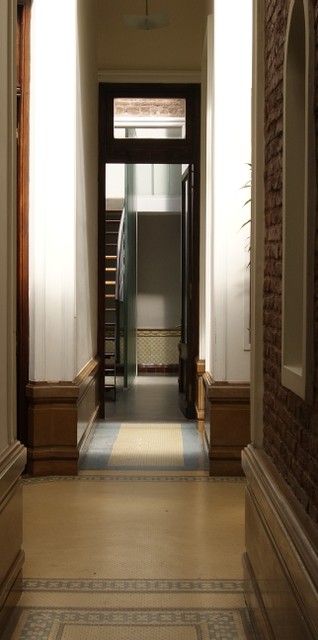Administrative Litigation Code: a new horizon with greater guarantees
A historic change is underway
Uruguay takes a big step towards a fairer and more efficient administrative system with the approval of its first Administrative Litigation Code (CCA).
For decades, the administrative process in our country has been governed by fragmented regulations, tight deadlines, and cumbersome procedures (Decree 500/991; Decree Law No. 15,524 of 1984; Law No. 20,010 of 2021; Law No. 15,869 of 1987; and article 455 of Law No. 20,212 of 2023).
However, Uruguay changed course by approving this new code, a milestone that promises to radically transform the relationship between the State and the administered.
The CCA not only repeals previous laws, but establishes a new paradigm that grants administered greater rights and fairer deadlines, something that was urgently needed.
With the CCA, Uruguay not only aligns itself with the best international practices, but also lays the groundwork for a more agile administrative system with greater guarantees for the Administered.
Main modifications of the CCA
1. Filing an administrative appeal - 10 business days
The deadline for filing an administrative appeal was 10 calendar days after notification to the Administered. This led professionals to file the appeal and make use of the provisions of article 155 of Decree 500/991, which basically involved postponing the grounds for a later stage and ultimately extending the administrative process.
The CCA introduces a change in this regard: it does not change the number of days, but the way they are counted, now being counted in business days and no longer calendar days.
2. Nullification lawsuit - 90 calendar days
Furthermore, the CCA extends the deadline for filing the nullification lawsuit, increasing the Administered's deadline from 60 calendar days after exhausting the administrative process to 90 calendar days from that same moment.
3. Urgency - 30 calendar days
A true novelty in the field is the institute called "Urgency". Introduced by the CCA, it allows reopening the 90 calendar day period to file the nullity lawsuit.
The administrative process is exhausted with the Resolution of the appeals filed, or through the fictitious denial, which occurs after 150, 200, or 250 calendar days depending on the appeals filed, when no Resolution has been issued.
With the modification introduced by the CCA, as long as no Resolution has been issued by the Administration, and two years have not passed, the Administered may use this new institute, granting the agency a maximum period of 30 calendar days from the following to the urgency, to issue a decision. Once that period has expired, the 90 calendar day period to file the nullity lawsuit is reopened.
4. Hearings via videoconference
Another highlight of the modifications is the possibility of holding hearings via videoconference, which solves the problem for those who, due to force majeure or distance, cannot attend in person.
5. Reparatory action in case of a non-decisive judgment
In cases where the nullity action has been chosen, the reparatory action cannot be raised until (i) a judgment annulling the act is issued; (ii) a judgment dismissing the nullity claim is issued but the reparatory action is reserved; or, and here is the valuable part, (iii) the nullity process concludes with a judgment that ends the process without deciding on its main object or by an extraordinary means, with the exception of when this occurs due to expiration of the instance or withdrawal of the nullity claim.
Under the old regulation, in a minority position, jurisprudence vaguely admitted this position: that is, that before a TCA judgment, which neither granted nor dismissed the nullity claim - but which ended the process without deciding on its main object - a reparatory action could be filed, thereby interrupting the statute of limitations against the State.
Despite this minority position, it was not expressly provided for by the norm, and now it is.
New additions in terms of jurisdiction
With the implementation of the CCA, Uruguay embarks on a significant reorganization of its judicial system, distributing competencies between the Administrative Litigation Court (TCA) and the Annulling Contentious Lettered Courts (created by Law No. 20,212).
The creation of the Appeals Court in Annulling Contentious matters is also foreseen, marking a crucial advance in the modernization of administrative justice.
The TCA will continue to play a leading role by hearing in a single instance the nullity claims of final administrative acts that have general legal effects, as well as those issues that escape the jurisdiction of lower courts, or that are covered by article 313 of the Constitution. This means that the most complex cases and of greater importance to society will continue to be handled by this body.
On the other hand, the Lettered Courts of Annulling Contentious matters will hear in first instance the nullity claims of final administrative acts that produce particular legal effects; and in sole instance the nullity claims of final administrative acts in the different cases identified in article 21 of the CCA, including when the amount in question does not exceed 70 UR. This approach will allow the administered to resort to justice in a more agile and accessible manner, while optimizing the handling of less complex cases.
Regarding appeals, until the Appeals Court in Annulling Contentious matters is installed, the TCA will be responsible for reviewing the decisions of the Lettered Courts.
Final reflections: A new horizon
Administrative deadlines have traditionally been an obstacle for the Administered, characterized by their brevity that often proves insufficient for adequate defense. In contrast, administrative processes have tended to be excessively prolonged, either administratively or before the TCA. This lack of speed has left the administered without the necessary tools to protect their interests.
Under the old regulation, administrative resolutions often become dead letters because they are unenforceable, forcing the Administered to resort to the Lettered Court in Administrative Litigation to initiate a new and also lengthy process known as "Reparatory Patrimonial". This journey is necessary to finally obtain compensation for the damages suffered.
However, the recent changes offer the Administered a new horizon. It is expected that these adjustments will not only provide greater guarantees, but also establish more reasonable deadlines for both parties, promoting a more balanced and effective process.
--
Montevideo, October 18, 2024 - Dr. Esc. Paola Spangenberg


